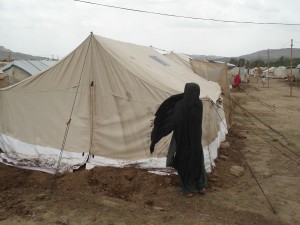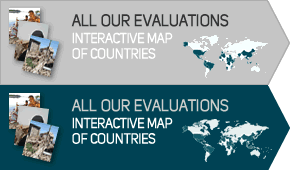October 20, 2010
DARA launches its report on the Inter-Agency Real-Time Evaluation (IA RTE) of the humanitarian crisis that affected Pakistan from mid 2009 until 2010, the largest internal displacement the world has experienced this century. The report, commissioned by the Inter Agency Standing Committee, is published at a time when further epic displacement is happening in Pakistan due to recent floodings. Findings and recommendations of this RTE will be useful in the current response to the crisis.
Pakistan’s first IA RTE of a complex emergency
Pakistan is part of the Hindu Kush region, where major geopolitical developments are ongoing, both related to aid, security and diplomatic agendas. The region is prone to disasters and complex emergencies. Pakistan is the country where more IA RTEs have been carried out (2005 earthquake, 2007 floods). However, this was the country’s first independent RTE to be carried out following a complex emergency, the previous ones analysed the response to natural disasters.
More on this real-time evaluation
DARA conducts real-time evaluation of the international response to two typhoons in the Philippines
Inter-Agency Standing Committee Real-Time Evaluation in Mozambique
DARA Peer Reviews First Sector-wide Guide to Real-Time Evaluations
Main findings
The report looks at internal displacement- one of the major challenges of the 21st Century. It intends to provide the humanitarian system with an opportunity for real-time learning. The report contains findings and recommendations to help improve the preparedness and response to future displacement crises. Issues covered include: clusters performance, the role of the Pakistani Government, assistance in cash versus in kind, and recommendations on humanitarian diplomacy and principled responses, as well as programme appropriateness, and needs and vulnerability assessments.
- The international community should develop an active strategy of humanitarian diplomacy to work towards a more principled approach and less constrained humanitarian space in Pakistan.
- The humanitarian community should reassess all existing programmes in Pakistan in terms of appropriateness of the type of assistance and target groups.
- Donors should adequately fund recovery in the short- term. Funding levels are currently very low.
- Effective humanitarian crises response will depend on our ability to learn lessons in real-time.





Share this